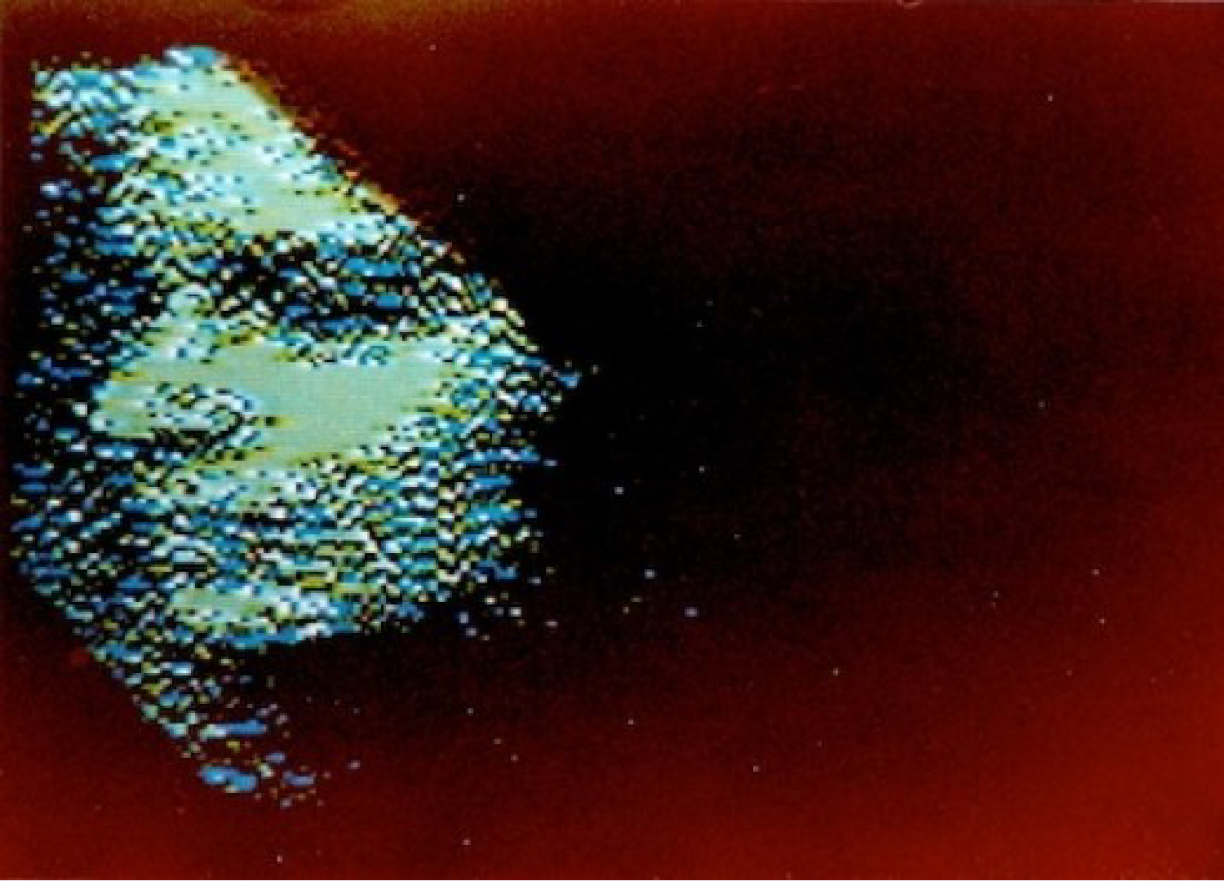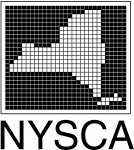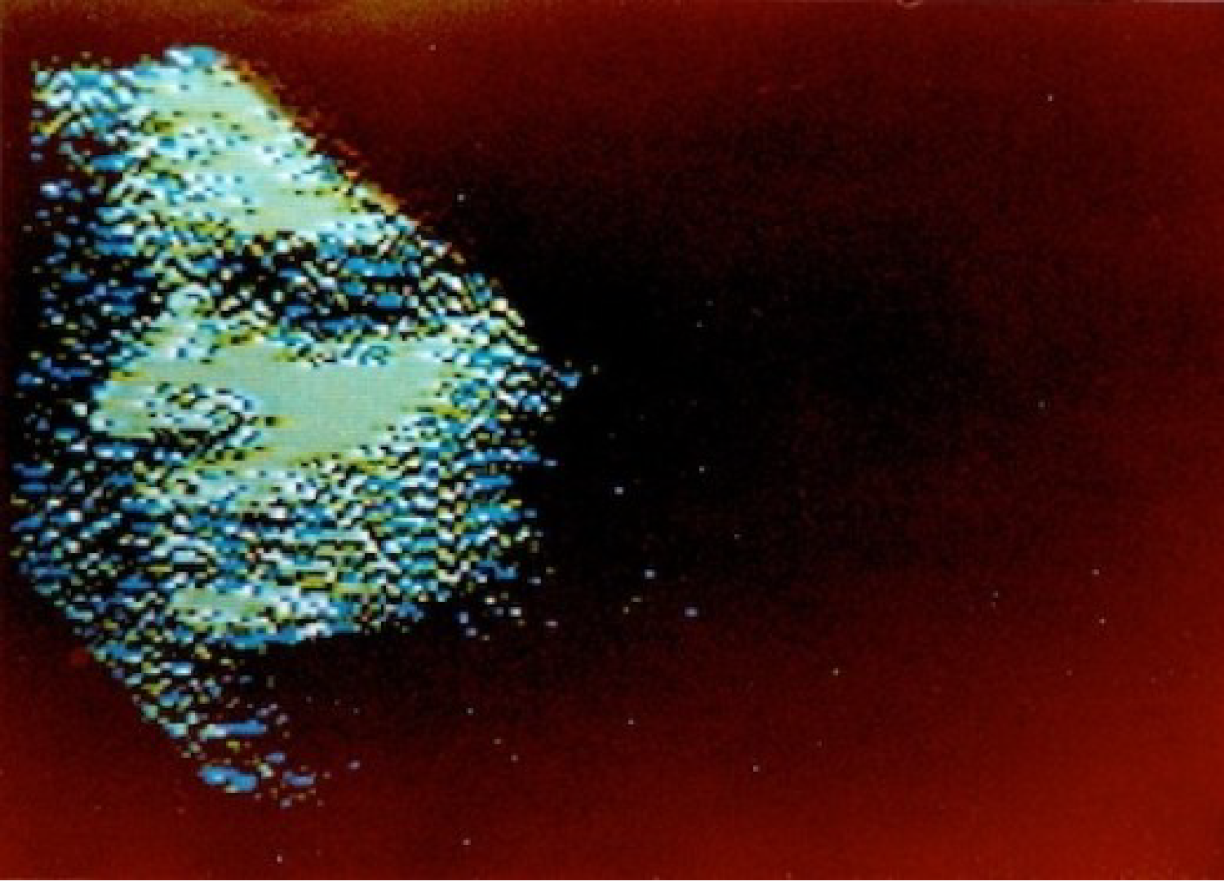For the video presentation of A Harmonic Algorithm 2020, click and drag your cursor along the screen to view a 360 degree view of ISSUE’s 22 Boerum theater. The conversation between Laurie Spiegel, Seth Cluett, and Tara Rodgers is the second video embedded on this page. As with all ISSUE streaming projects, enabling the full screen view is encouraged. If you are in a position to do so, join ISSUE during the final day of our Membership Campaign to support ongoing commissions and presentations through the Fall season.
Thursday, September 10th, ISSUE streams a 360 degree video presentation of electronic music pioneer Laurie Spiegel’s piece A Harmonic Algorithm 2020 coordinated in collaboration with composer and artist Seth Cluett. A work first created through a computer algorithm coded by Spiegel, the piece is spatialized at ISSUE’s 22 Boerum theater by Cluett, Artist-in-Residence at NOKIA Bell Labs. Working in dialogue with Spiegel on the multi-channel loudspeaker array at Bell Labs, Seth Cluett has created a new diffusion of the work that will take advantage of the unique acoustics of 22 Boerum Place.
The September 10th stream will also be followed by a conversation between Spiegel, Cluett, and multi-instrumentalist composer and historian Tara Rodgers discussing the collaborative process around A Harmonic Algorithm 2020 and in celebration of Spiegel’s 75th birthday.
Over the coming month, ISSUE’s 22 Boerum will have limited accessibility specifically to host the installation of Laurie Spiegel's A Harmonic Algorithm 2020, coordinated by Seth Cluett. The spatialized self-playing presentation will run on the hour, each hour between: Wednesday 4pm - 7pm and Saturday 12pm to 4pm starting the week of (8/8) through the beginning of September (9/10).
The installation will only be accessible to ticket buyers from the 3/28 Laurie Spiegel: A Harmonic Algorithm postponed presentation, current ISSUE Members & those who Join during our Summer Campaign. While we are excited to welcome you, the safety of visitors and staff is of utmost importance. Stringent safety protocols will be in place and in accordance with New York State’s reopening guidelines we require all to wear a mask and practice social distancing. We will accommodate a maximum of 5 visitors per session. 22 Boerum will remain closed to the general public and there will be no walk-ups.
Laurie Spiegel’s A Harmonic Algorithm 2020 is a new version of her piece, A Harmonic Algorithm 2011, which was the third incarnation of a series of algorithms that Spiegel first coded on her Apple II computer around 1980. In her program notes for the piece, Spiegel notes, “At Bell Labs, it had occurred to me [...] that if a composer creates individual ‘pieces of music’ that at the end of his/her life there will only be a finite number of musical works by that composer. If instead of composing individual finite length works, a composer could encode in computer software their personal compositional methods, preferences, processes and ways of making musical decisions, and somehow their aesthetic sensibility too, then they could go on composing and generating new music long after the biological human had ceased to exist.”
She continues, “In figuring out this particular logic, I spent a lot of time studying the harmonic progressions in Bach's Chorales, on which I based this software. I had happened upon a wonderful used book, "The Contrapuntal Harmonic Technique of the 18th Century" (Allen Irvine McHose, 1947) that was extremely helpful to me while figuring out the logic I coded into these algorithms. (A compositional algorithm is basically just a set of rules, a description in an artificial computer language of a process of decision-making, a sort of a written ‘score’ that embodies a procedure for composing, except that instead of humans playing from that score, a machine does.)”
Composer Laurie Spiegel's music draws on her classical training, pre-classical lute, and folk guitar and banjo roots; however, she is also a computer programmer, software designer, visual and video artist, and a published theorist. She is known for her pioneering work with several early electronic and computer music systems, focusing largely on interactive software that uses algorithmic logic to supplement and extend human abilities, and on the aesthetics of musical structure and cognitive process. Spiegel's visual works—computer graphics, video, drawings, and photography—have been exhibited in the United States, Europe, and Japan. She has directed computer and electronic music studios and taught composition at Cooper Union and at New York University, where she founded its first computer music studio. Her realization of Johannes Kepler's Harmony of the Planets was sent into space as the opening cut of the Voyager Spacecraft's record Sounds of Earth (1977). Spiegel's recorded works have been available on 1750 Arch, Capriccio, Philo, Unseen Worlds, and other labels. Her computer software for music, such as Music Mouse—An Intelligent Instrument (1986), has been published for Amiga, Atari, and Macintosh computers. Spiegel has received fellowships and grants from the New York State Council on the Arts, ASCAP, and the Experimental Television Lab at WNET, among others. She is a freelance composer for film, dance, and other media, as well as a writer, software developer, visual artist, and a consultant in computer music, audio software design, and in other areas of information technology. Spiegel's studies include an A.B. from Shimer College and an M.A. from Brooklyn College, and additional studies at Oxford and Juilliard.
Seth Cluett is a composer and visual artist who creates work that explores everyday actions at extreme magnification, examines minutae by amplifying impossible tasks, and tries to understand the working of memory in forms that rethink the role of the senses in an increasingly technologized society. Ranging from photography and drawing to installation, concert music, and critical writing, his “subtle…seductive, immersive” (Artforum) sound work has been characterized as “rigorously focused and full of detail” (e/i) and “dramatic, powerful, and at one with nature” (The Wire). The recipient of grants from Foundation for Contemporary Arts Emergency Fund and Meet the Composer, his work has been presented internationally at venues such as The Whitney Museum, MoMA/PS1, Moving Image Art Fair, CONTEXT Art Miami, GRM, and STEIM. His concert work has been commissioned by ensembles ranging from the Hong Kong Sinfonietta and the International Contemporary Ensemble to So Percussion, Catch Guitar Quartet, and Clogs and is documented on Line, Sedimental, Notice, and Winds Measure recordings. Cluett is on the faculty of the Department of Music and the Assistant Director of the Computer Music Center and Sound Art Program at Columbia University and is Artist-in-Residence with Experiments in Art and Technology at Nokia Bell Labs where he maintains a studio and is active in research on virtual and augmented reality acoustics and multi-sensory communication. More information: http://www.sethcluett.com
Dr. Tara Rodgers (Analog Tara) is a multi-instrumentalist composer and historian of electronic music. She is the author of Pink Noises: Women on Electronic Music and Sound (2010) and numerous articles on the history of sound and synthesizers. Her music, from analog techno to generative sound installations made with SuperCollider, has been presented around the U.S. and internationally. www.analogtara.net




